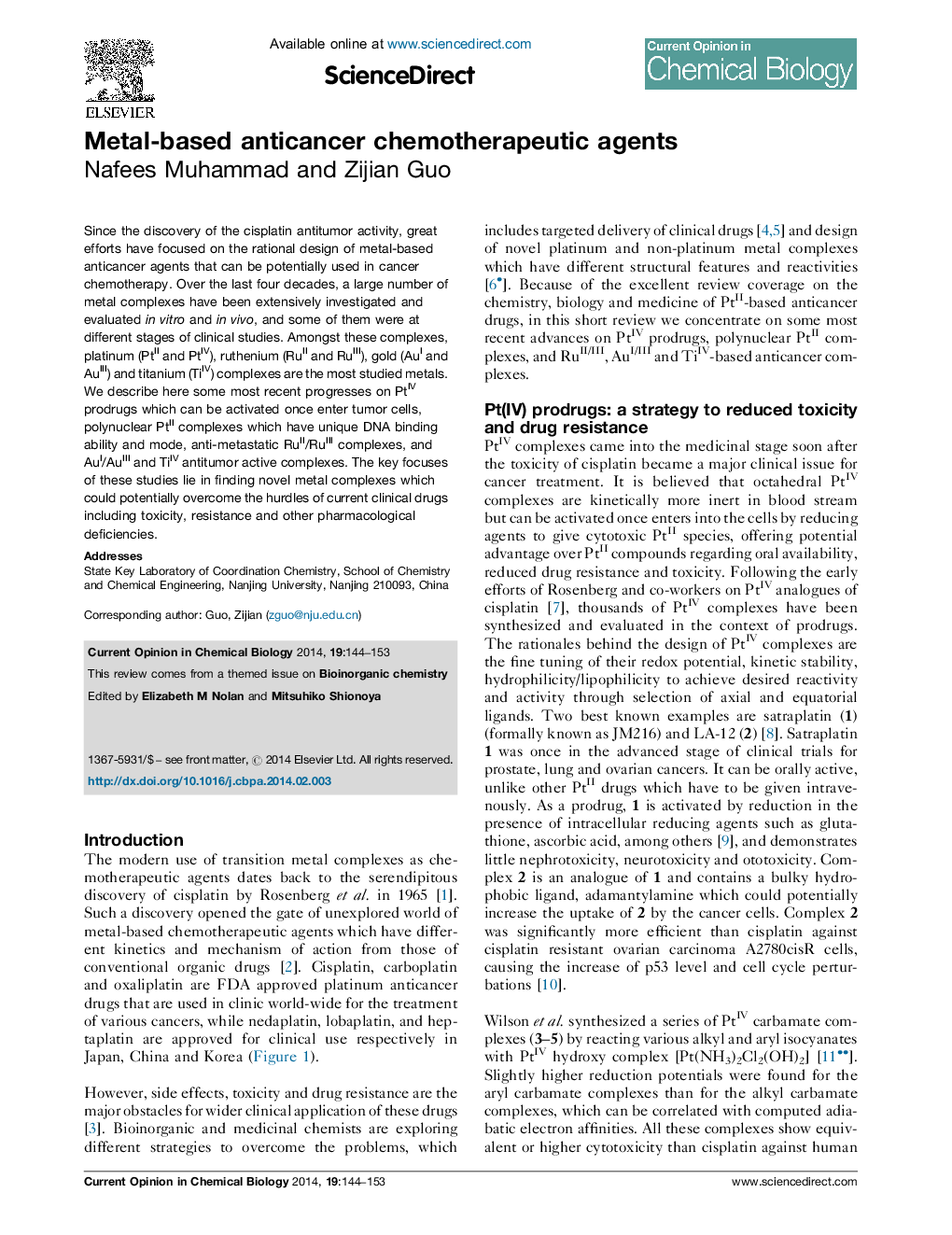| Article ID | Journal | Published Year | Pages | File Type |
|---|---|---|---|---|
| 7694955 | Current Opinion in Chemical Biology | 2014 | 10 Pages |
Abstract
Since the discovery of the cisplatin antitumor activity, great efforts have focused on the rational design of metal-based anticancer agents that can be potentially used in cancer chemotherapy. Over the last four decades, a large number of metal complexes have been extensively investigated and evaluated in vitro and in vivo, and some of them were at different stages of clinical studies. Amongst these complexes, platinum (PtII and PtIV), ruthenium (RuII and RuIII), gold (AuI and AuIII) and titanium (TiIV) complexes are the most studied metals. We describe here some most recent progresses on PtIV prodrugs which can be activated once enter tumor cells, polynuclear PtII complexes which have unique DNA binding ability and mode, anti-metastatic RuII/RuIII complexes, and AuI/AuIII and TiIV antitumor active complexes. The key focuses of these studies lie in finding novel metal complexes which could potentially overcome the hurdles of current clinical drugs including toxicity, resistance and other pharmacological deficiencies.
Related Topics
Physical Sciences and Engineering
Chemistry
Chemistry (General)
Authors
Nafees Muhammad, Zijian Guo,
